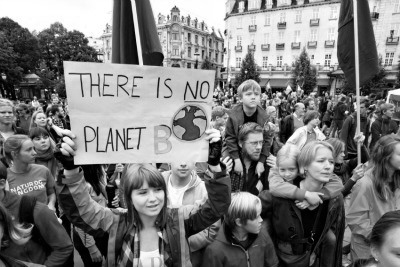
In the latest edition of Working Notes, Catherine Devitt explores how the imminent global threats of climate change and environmental degradation will affect the future of Ireland’s young adults, and the importance of education and policy-making in helping to mitigate the worst effects.
Climate change affects everybody, but it is young adults who will bear the heaviest burden as they mature in a very different world to that of their parents. There are currently more than 400,000 young men and women [aged between 18 and 24] in Ireland, and it is this demographic that will endure the impact of global warming and environmental decline in their lifetime.
Pope Francis, whose ecological encyclical Laudato Si’ provides an inspiration for moving towards environmental justice, applauds young people for having ‘a new ecological sensitivity and a generous spirit’, and for ‘making admirable efforts to protect the environment’.
The issue looks at the challenges ahead of today’s young adults in a climate-changing world and puts forward some considerations, particularly for education, that must be addressed to prepare this generation for a future that will bring a unique set of difficulties, as we move towards a low-carbon society.
The non-negotiable nature of climate change places a moral imperative on states to protect the current generation and future citizens from preventable harm, and understanding the scale of the transformation that is required is key to allaying its worst effects, on individuals and communities, here and globally.
This country is a high emitter of greenhouse gases, considering its relatively small population. There has been a failure at Government level to take consistent, ambitious action to implement climate policy. Despite the State’s admission that climate change is ‘the global challenge of our generation’ and the ratification of the Paris Agreement in 2016, emissions continue to rise, across all sectors.
In order to achieve the policy objective for 2050, the country needs to reduce combined emissions from energy, transport, buildings and agriculture by an incredible 80 per cent. This transition to a low carbon society will have huge ramifications, which will be felt keenly by those who are presently young adults, but a failure to do so is threatening their human rights and placing them in danger.
Ireland needs to honour its global agreements, and by implementing policy, set in motion the considerable social and economic changes needed to achieve its objectives and mitigate the worst effects of extreme climate change.
Young adults are vital to the process of Ireland moving towards a sustainable economy and environment in a climate changing world. Education is key to empower them with the tools to understand both the issues and the solution. It will also equip young adults with the skills needed to enable them to engage in dialogue with Governmental groups, climate action groups and others who are active in the environmental sphere.
{fastsocialshare}


